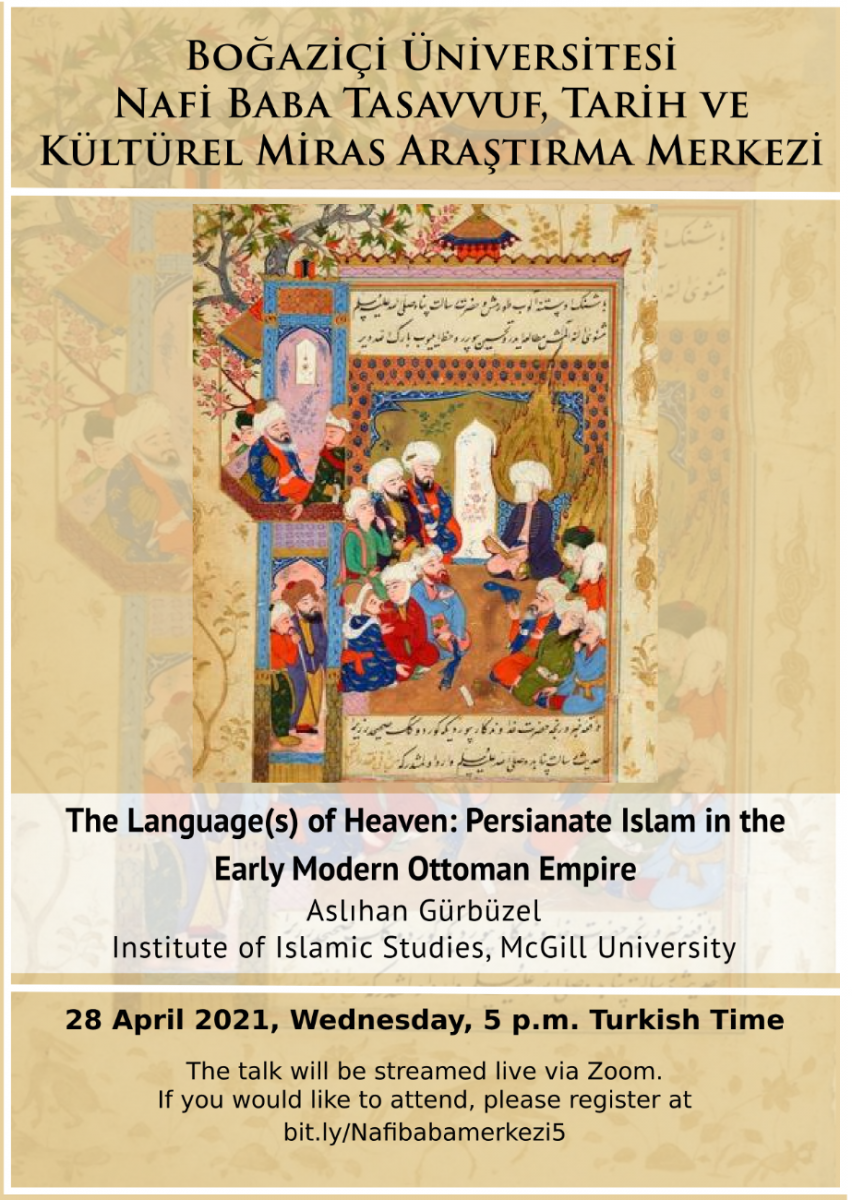| Pt | Sa | Çar | Per | Cu | Ct | Pa |
|---|---|---|---|---|---|---|
| 1 | 2 | 3 | 4 | 5 | 6 | |
| 7 | 8 | 9 | 10 | 11 | 12 | 13 |
| 14 | 15 | 16 | 17 | 18 | 19 | 20 |
| 21 | 22 | 23 | 24 | 25 | 26 | 27 |
| 28 | 29 | 30 |
The Language(s) of Heaven: Persianate Islam in the Early Modern Ottoman Empire
Sa, 13/04/2021 - 16:25 — duygu.durgun
28/04/2021 17:00
Turkey

| Early modern state formation in the Ottoman Empire was a complex process that mobilized not only institutional but also religious and ideological strategies to ensure that state authority penetrated deeply into the society. Chief among these religious strategies was a greater emphasis on the surveillance of religious conduct through the cooperation of state and non-state actors. Recent studies have understood the puritan currents of the seventeenth century, long studied in isolation, as an episode within this long-term development of an Ottoman state religion. What remains underexplored, however, is the strong early modern opposition to the new religio-political synthesis.In this talk, Dr. Gürbüzel discusses anti-puritan literature in the early modern Ottoman Empire with a focus on the Mevlevī order and their allies -mainly scholars, scribes and a group of Ottoman thinkers who self-identified as Illuminationists (işrāḳī). She focuses on the concept of Persianate Islam (or, Persian as a language of heaven) as found in Mevlevī sources and its reception among Ottoman scholars and literati. In addition, Dr. Gürbüzel argues that the role of the Mevlevīs in anti-puritan debates became one of the main pillars of Mevlevī identity in the eighteenth century. Eighteenth-century Mevlevī historical narratives portrayed the order as "valiant warriors against Kadızadeli heretics." Therefore, the legacy of the Mevlevī reaction to Ottoman puritanism was long-lived; it remained central to Mevlevī identity and reception in the Ottoman age of reform.
Aslıhan Gürbüzel obtained her B.A. and M.A. degrees at Bilkent University, Ankara, and her Ph.D. Degree at Harvard University. Since 2016, she has been Assistant Professor of Ottoman History at the Institute of Islamic Studies at McGill University. Her research focuses on early modern Ottoman Sufism with an emphasis on the role of Sufi orders in knowledge production, particularly in the fields of rhetoric and medicine. She is the author of Taming the Messiah: Formation of an Ottoman Political Public Sphere (University of California Press, Forthcoming).
|
http://bit.ly/Nafibabamerkezi5

